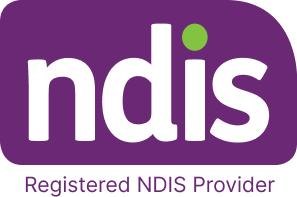
How to Create an Inclusive Environment for People with Intellectual Disability
Understanding Intellectual Disability
Intellectual disability, a term often misunderstood and misconstrued, encompasses a broad spectrum of conditions characterised by limitations in intellectual functioning and adaptive behaviour. These limitations, which can vary widely from person to person, affect key mental abilities such as learning, reasoning, problem-solving, and abstract thinking.
Intellectual functioning, or IQ, refers to a person’s ability to learn, reason, and make decisions. Those with intellectual disability may face challenges in this area, leading to difficulty grasping complex concepts or understanding new information quickly.

On the other hand, adaptive behaviour relates to practical skills needed for everyday life. This includes social skills, such as communicating effectively, interacting with others, and understanding societal norms. It also encompasses practical skills like personal care, safety precautions, and handling money. Individuals with intellectual disability may struggle with some of these tasks, requiring additional support and living requirements.
Misconceptions about intellectual disability, often lead to stigmatisation and exclusion. For instance, some people mistakenly believe that those with intellectual disability cannot learn new things or live independently. Others may underestimate the potential for emotional depth, meaningful relationships, and societal contributions. These misconceptions can create barriers to social inclusion, perpetuating cycles of isolation and marginalisation.
Therefore, it’s crucial to dispel these myths and promote a more accurate understanding of intellectual disability. Through education and awareness, we can foster empathy, inclusivity, and respect for all individuals, regardless of their cognitive abilities. By doing so, we pave the way for individuals with intellectual disability to participate in society and live fulfilling, meaningful lives.
The Importance of Inclusivity
Inclusivity, central to community health and individual well-being, is more than just a concept of fairness. It is a commitment to creating environments where everyone, including those with intellectual disabilities, feels valued, accepted, and able to participate fully.
Organisations like The Housing Connection are crucial in making this vision of inclusivity a reality by supporting adults with intellectual and other disability to live valued and rewarding lives within the community. We provide tailored support, accommodating the unique needs and goals of each individual we work with.
Inclusion is more than just physical presence. It’s about active participation and meaningful engagement. When individuals with intellectual disability are included in social, educational, and professional spaces, they can explore their potential, develop their skills, and contribute meaningfully to their communities.
The Housing Connection exemplifies this approach. Our focus is not merely on providing housing but on facilitating an enriching life in the community for people with disability. We work closely with individuals to understand their aspirations and provide the necessary support to help them achieve these goals.
Inclusive environments foster a sense of belonging, which is vital for mental and emotional well-being. The acceptance that individuals with intellectual disability experience when included can bolster their self-esteem and confidence, leading to improved mental health outcomes and quality of life.
Furthermore, inclusion benefits communities as a whole. It fosters diversity, enriches perspectives, and promotes mutual understanding and empathy among community members. By including people with intellectual disability in all aspects of community life, we challenge stereotypes, break down barriers, and create a more compassionate society.
As organisations like us continue our important work, we serve as a reminder of the transformative power of inclusivity. By implementing practical strategies and maintaining a commitment to understanding and meeting the needs of individuals with intellectual disability, we can all contribute to a more inclusive world.
Practical Steps for Inclusivity
Creating an inclusive environment requires intentional effort. Accessibility adjustments, inclusive communication practices, and community engagement strategies are all vital components of this process.
The Housing Connection is an excellent example of these principles in action. Our work goes beyond providing accessible housing and support; we also promote positive attitudes towards diversity and foster an inclusive community.

Inclusive communication practices are another key aspect of their work. We ensure everyone feels heard and understood by tailoring our support to each individual’s unique needs and goals.
Community engagement strategies, like hosting inclusive events and establishing advocacy groups, can help normalise diversity and promote social inclusion. The Housing Connection’s commitment to enabling individuals with disabilities to live rewarding lives in the community embodies this approach.
Resources and Support
There are many resources available to assist in creating inclusive environments. Organisations, websites, and tools dedicated to inclusivity and intellectual disability can provide valuable guidance and support.
Inclusivity is more than a buzzword. A commitment to creating spaces where everyone belongs can make a meaningful difference by taking active steps towards inclusivity in our personal, professional, and community lives. Let’s take this journey together.


